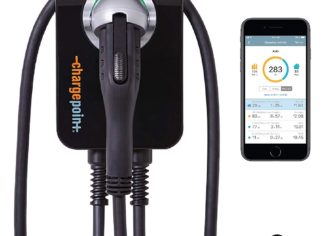Electric Car Charger Installation in Your Home: True Costs — and What You Need to Know
Petrol and diesel vehicles have a high carbon footprint. They are one of the most significant contributors to global warming. Electric cars are a great alternative to conventional vehicles running on petrol and diesel. They have a much lower carbon footprint and are much more environment-friendly.
Electric vehicles are slowly making its place in the market. It will take a lot of time before it overtakes the conventional cars, but people are beginning to accept them. Most of the famous car manufacturers are rushing to introduce their electric vehicles in the market and trying to contribute towards a better climate. Another factor for the growth of EVs is cheaper manufacturing costs and simple development. Nissan leaf was the first modern mass-produced electric vehicle, launched in 2010.
More about Electric Vehicles:
Electric Vehicles (EVs) run on electricity produced by the batteries installed in them. These batteries have different capacities and power. The owner of the EV needs to charge the vehicle to keep the batteries topped up. The mileage of an EV is directly dependent on the power and capacity of its battery. The top of the line electric vehicle, such as the Tesla Model S can travel 375 miles on a fully charged battery.
If you don’t have an electric vehicle, you might be wondering how do the owners of EVs charge their cars. A conventional car visits a gas station and gets fueled up. Electric Vehicles, on the other hand, are either charged at home or by charging units installed at various locations. They might look like a regular gas station at a glance, but they are not.
If you own an electric vehicle and are thinking of purchasing a charging station at home, then you are in the right place. Installing an EV charge station at homes come with many benefits, and is essential for a fully electric vehicle. There are different types of charging stations, depending on the power they can supply to a battery.
Level 1 Chargers:
The car manufacturers provide these chargers when a vehicle is purchased. Level 1 chargers are the slowest form of charging a battery but are pretty convenient to use. It is a wire that you plug into your standard 120-volt house outlet and the other end into your EV. They provide a maximum charging power of 1.9 KW. Typically, all the garages have an outlet in them, and you can charge your car overnight right at your home with ease.
Charging capacity:
If your daily commute is low, then a level 1 charger will suffice for regular use, and you won’t need to spend any extra money. Level 1 chargers typically provide 4 to 5 miles of range per hour of charging. It will take it around 22 to 28 hours to fully charge a completely depleted Nissan leaf battery, depending on the model. A Chevy Bolt might take up to 43 hours, and a Tesla Model 3 will require 50 hours to charge an empty battery completely.
These numbers might not look impressive on paper, but as I said earlier, it depends on your daily commute. Let’s say that you have a Nissan Leaf, and you travel 30 to 40 miles daily. As the maximum mileage of Nissan Leaf is 150 miles on a full charge, you will have to charge it for 9 hours for a hundred percent backup. So, you can come home and leave it overnight and then continue with your daily travel the next day. People hardly drain their batteries to zero percent. So, if you don’t travel much, a level 1 charger that comes with the car will be more than enough.
Pricing and our take:
Manufacturers are selling Level 1 charging stations, but they are useless, in my opinion. You won’t need a dedicated level 1 charging station when you can get the same power through your standard home outlet. The EV manufacturer already provides the wire when you purchase the car. Level 1 charging stations cost around 300 to 600 dollars. Labor cost for installation of the unit and other hardware, such as electric wires, would set you back around 1000 to 2000 dollars, depending on your requirements.
Level 2 Charging Stations:
These charging stations are best for home use. Level 2 chargers use 220 to 240 volt of power for charging. There are different varieties of level 2 chargers available for purchase in the market, depending on the charging speed.
Small and portable level 2 chargers are also available that provide around 3 to 5 KW charging power. Buy them only if you don’t have space and want a slightly faster-charging option than level 1 chargers. I recommend buying a maximum capacity level 2 charging station, even if your car has a lower onboard charging capacity. The reason is that you might change your EV in the future, and it might have a higher charging capacity. So, buying the maximum capacity level 2 charger now will save you the cost of purchasing a new one in the future.
Charging capacity:
To make a proper and informed decision before purchasing your Level 2 charger, you will have to know the maximum charging capacity of your EV. A Nissan Leaf, for example, has a charging capacity of 3.3 KW to 6.6 KW depending on the model. If you purchase a level 2 station that has a higher charging power than 6.6 KW, the Leaf will still only charge at its onboard charging capacity. The charging power of a level 2 charging station can go up to a maximum of 19.2 KW.
A level 2 charging station can fully charge an empty battery of the Nissan Leaf that has a 3.3 KW charging capacity, in 8 hours. That means that it provides around 12 miles of range per hour of charge. A Tesla Model S can get 34 miles of range per hour as it can utilize the maximum charging power of level 2 charging station.
Best Selling Level 2 Charging Stations
Pricing and our take:
A level 2 charging station price starts at 500 dollars and can go up to 700 dollars. Once you have purchased the station, you will have to hire an electrician for installation. You might also need to buy wires depending on the location you want the station to be installed. If it is near to your main power outlet, then it will be significantly cheaper as you will require a small length of wire. You will also need to purchase a breaker if your electrical outlet doesn’t have a 220 or 240 volts breaker present already. An electrician typically charges over 65 dollars per hour, and the installation process of the charging station can take over 3 hours, depending on your requirements. The estimated budget for labor and parts cost is 1200 to 2000 dollars.
There are instructional videos available on YouTube for the level 2 charger installation. If you are skilled enough and have some experience in electrical work, then you can try to install the unit yourself(NOT RECOMMENDED). Almost all the level 2 charging stations are wall-mounted.
You will incur extra costs if you don’t have ample space in your garage, as you will have to remodel it. Remodeling a garage can cost up to 10,000 dollars or more. So, you must consider the area required for the installation of a level 2 charging station before making a decision.
You must also consider the law of your state or area before the installation of the charging station. Some states might require a permit before you can modify the electrical configuration of your house. The process of acquiring a permit can run up to 300 dollars.
Smart EV Charging Stations:
The higher-priced charging station comes with extra features, such as Wi-Fi and an LED panel on the station. A Wi-Fi enabled charging station will connect to your mobile device. The manufacturers provide their specific applications that you can download from the app stores. These apps will give various statistics to the user about their EVs and charging stations. You can get the exact time your EV took to get charged up, the amount of electricity consumed while charging, and other useful stats. They even come with the option to connect with home assistant devices such as Google Home or Amazon Echo. With these, you can use voice commands to control your electric vehicle charging station.
Some owners might not need such details and would only want the primary function of charging their EVs. They should go for the cheaper charging stations. Others who like to be in complete control of their EVs and their charging should opt for the smart charging stations.
Extension Cable:
To save the cost of installation of a charging station at your home, you can purchase an extension cable for the one that came with the charging station or the car manufacturer. These cost around 200 dollars and can go above depending on the length and the power.
These cables provide excellent value to the customer. Let’s say that your main outlet is not in the garage, and you have to install a level 2 charging station. You will have to buy a wire that can cost around 6 to 8 dollars per ft. Depending on the distance, it could be a very costly installation. Instead, you can install the charging station where the main electrical outlet is and buy an extension cable for the charging wire.
The extension cable is also very beneficial for level 1 chargers provided by the manufacturers. Business owners are installing charging stations in their parking spaces, and the government is installing them as well. Although the area for EVs is dedicated, some conventional car owners ignore them and park there anyway. In such a scenario, the wire provided with the EV might be short, and you might not be able to get that valuable top-up. An extension cable will resolve this problem, and you will be easily able to charge your EV.
Why You Should Install an EV Charging Station At Home:
A home electric vehicle charging station provides lots of benefits. Not all EV public charging stations free, they cost around 8 to 15 cents per KW of charging. Thus, no matter what level of charging station you install at home, it will save you money.
You must also look for tax incentives as some governments provide incredible benefits to EV and plug-in hybrid car owners. For example, in the USA, Plug It America initiated an incentive program with the government for those who installed a charging station at home. In this scheme, the government gave back 30 percent of the installation cost of the charging station.
The most crucial benefit is that you can charge your EV at home whenever you need it. You won’t have to worry about your battery getting drained, as you will have the charger right in your home. If you spend a little extra and buy a level 2 charger with a maximum capacity of 19.2 KW, the charging time of your EV would be minimal.
LEVEL 3 Charging Station:
These charging stations are not available for home use. While both level 1 and 2 chargers use AC electricity, level 3 uses a DC electricity. They supply the current directly from the grid to your electric vehicle and bypass the onboard charging capacity your EV. They are also known as rapid chargers as they provide 50 KW of charging power. It can fully charge a Nissan Leaf battery from 0 to 80 percent in 30 min.
While level 3 chargers are beneficial, you must not make a habit of using them regularly. The reason is that they can affect the life of your battery and reduce them. Therefore, use them when it is essential, such as when traveling long distances.
In conclusion, if you travel over 40 miles a day, you should go for a dedicated level 2 charging station. It is better to buy a powerful charging station than the requirement of the car for future-proofing. Before purchasing, make sure you consider the location and space that is available to you. The closer you can place the station to the main electric panel, the better, as it reduces the wire cost.







